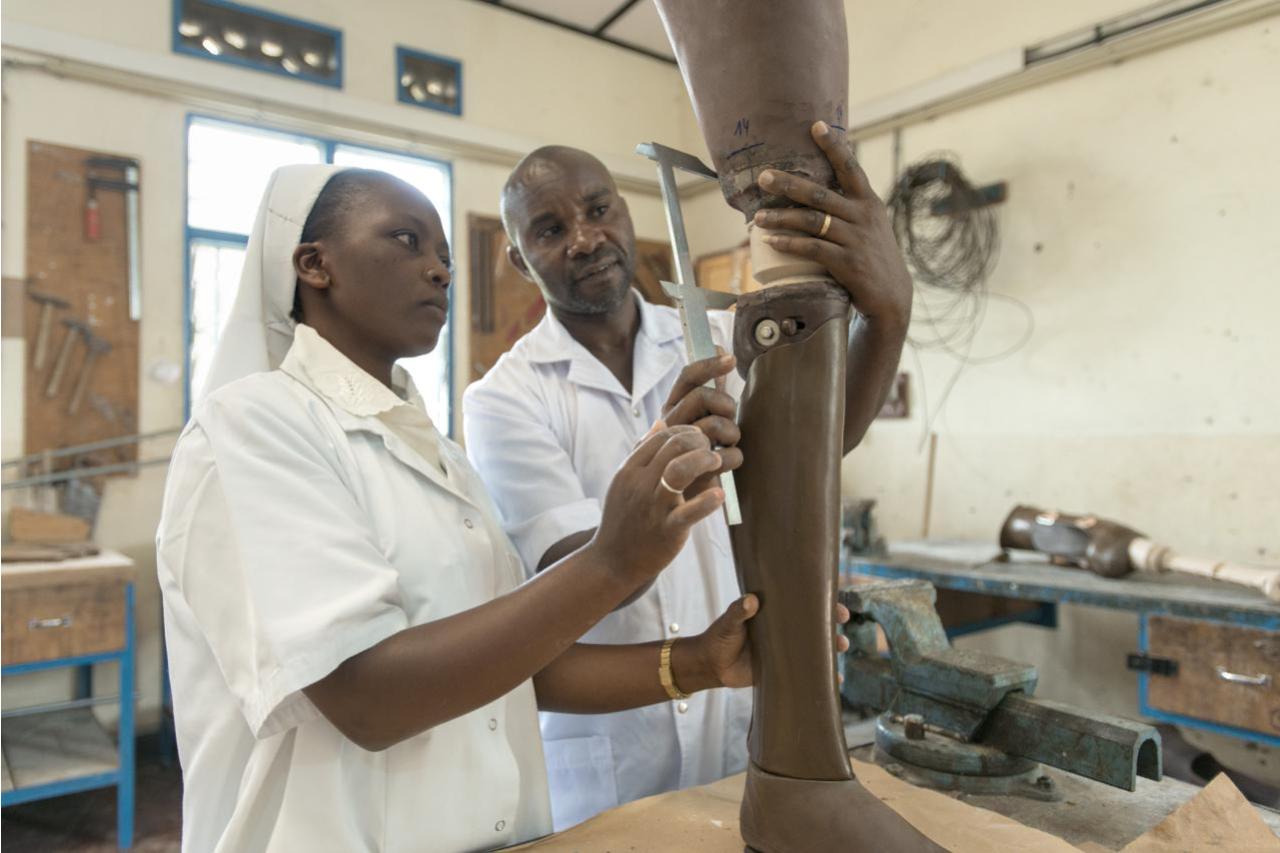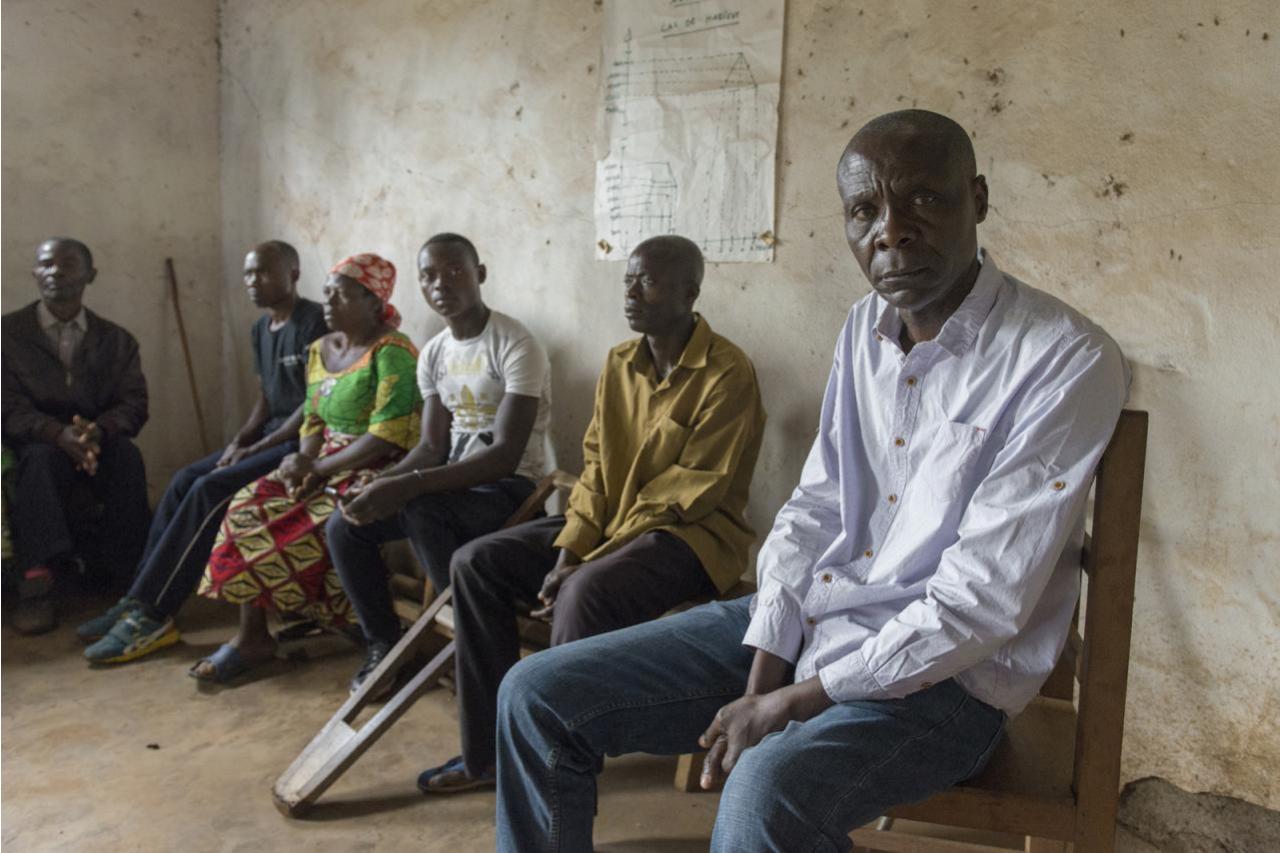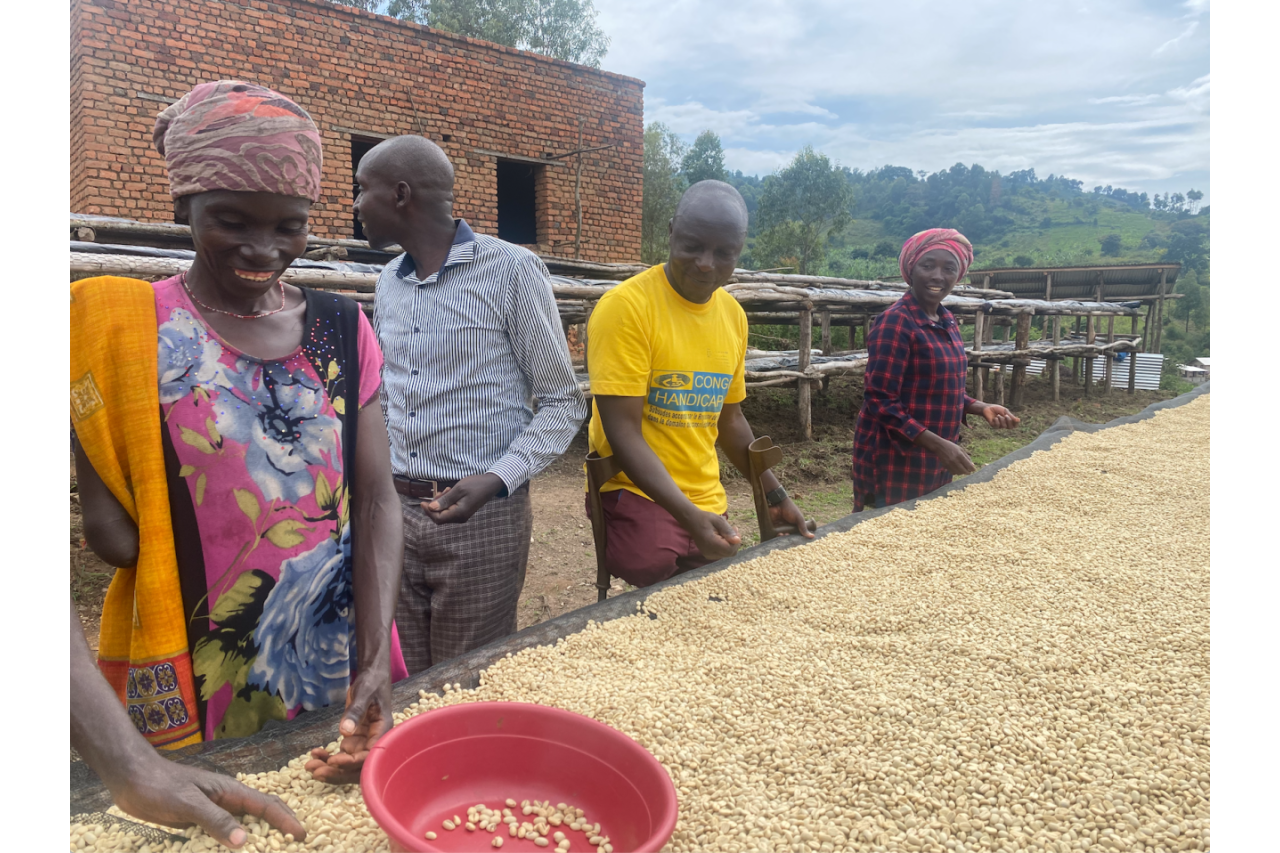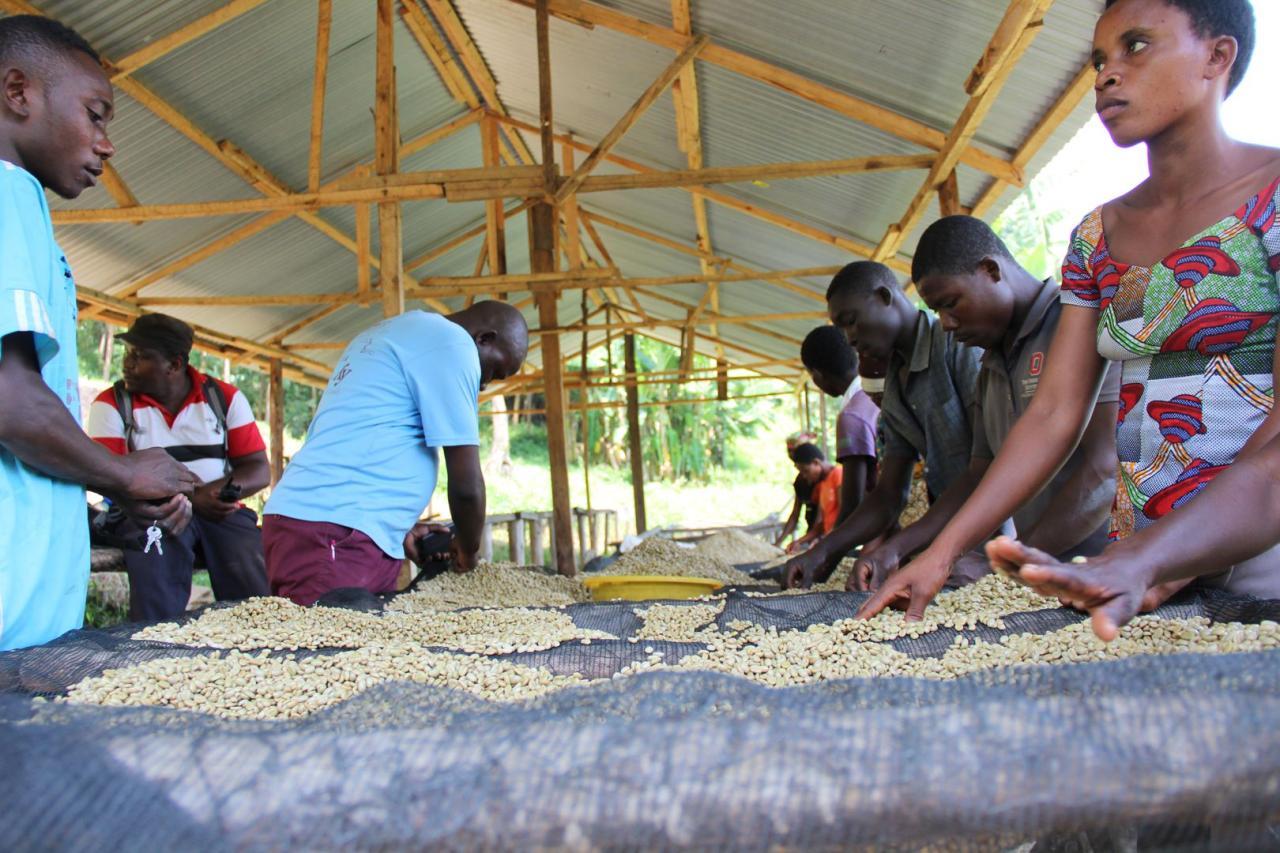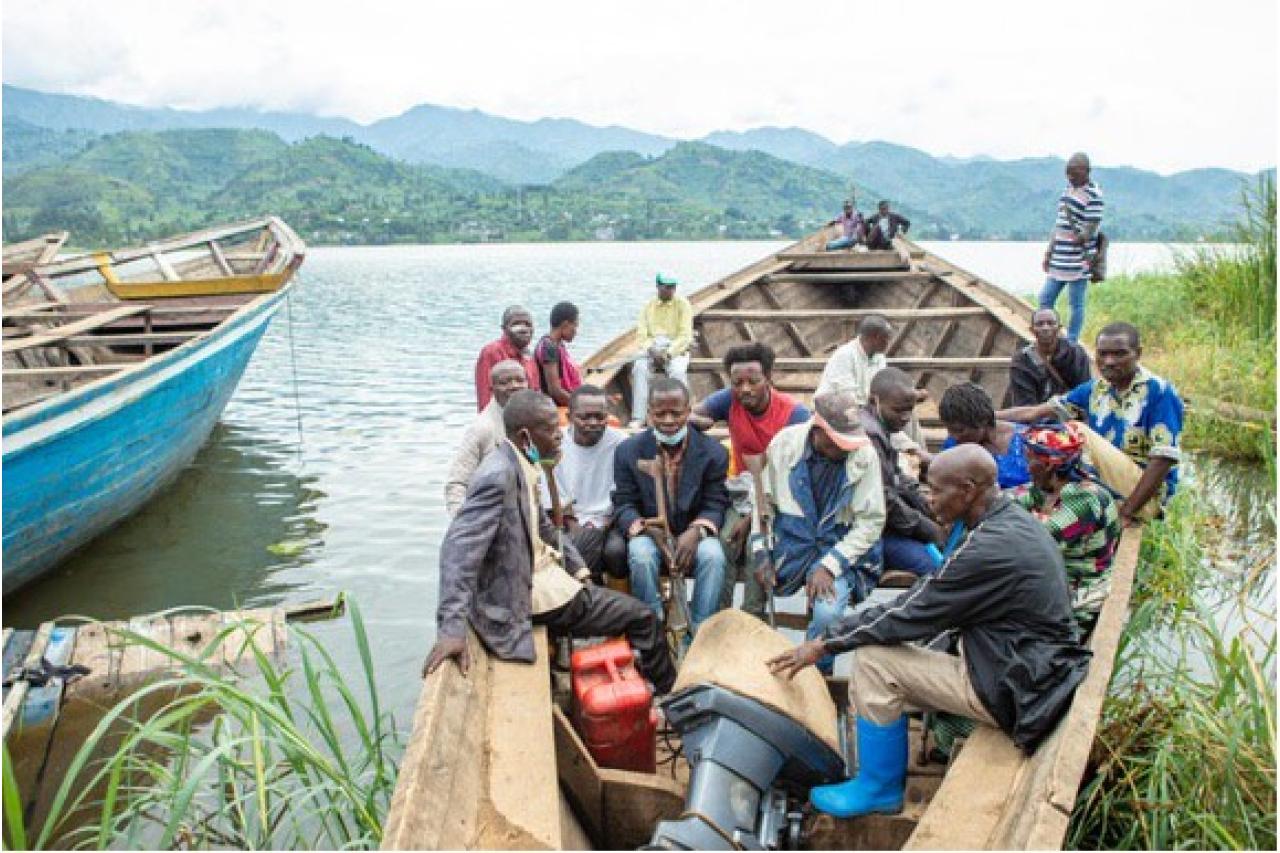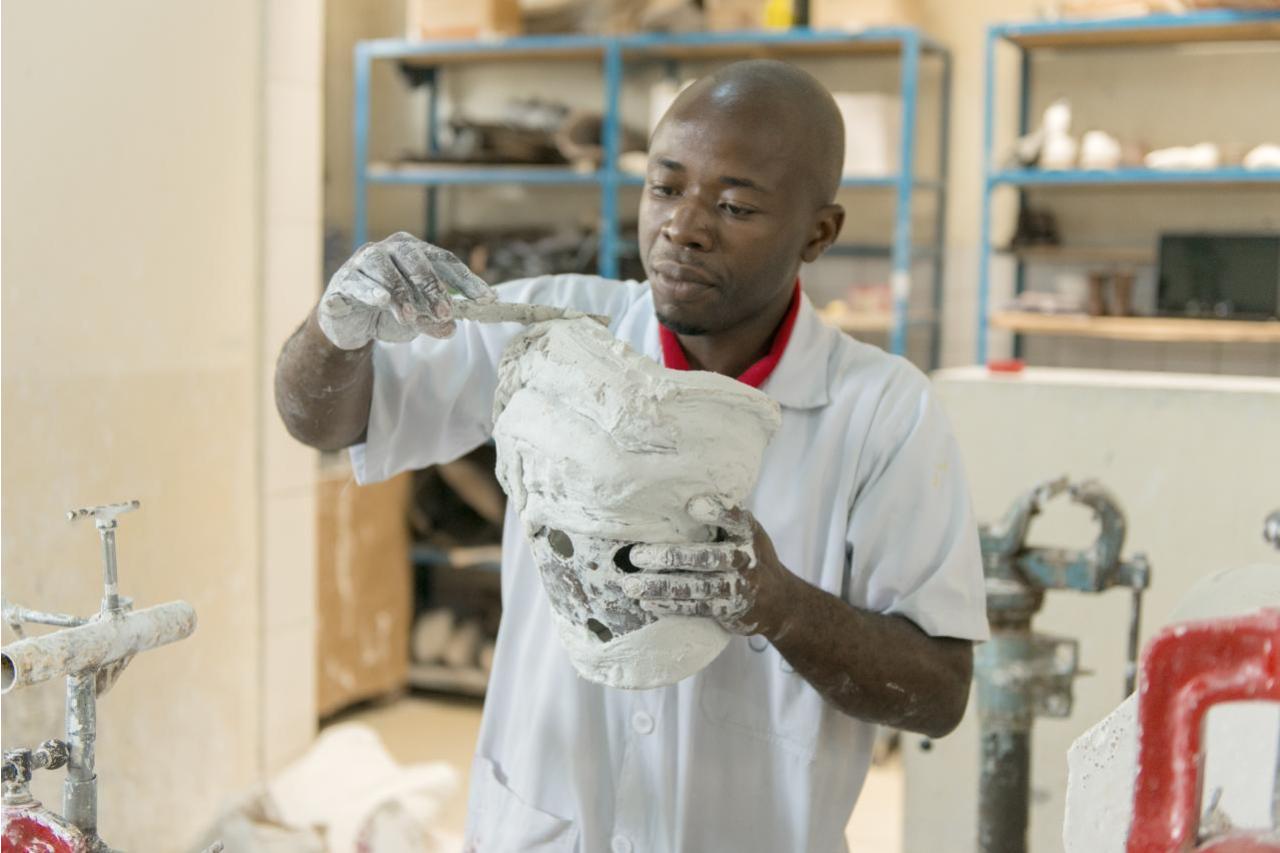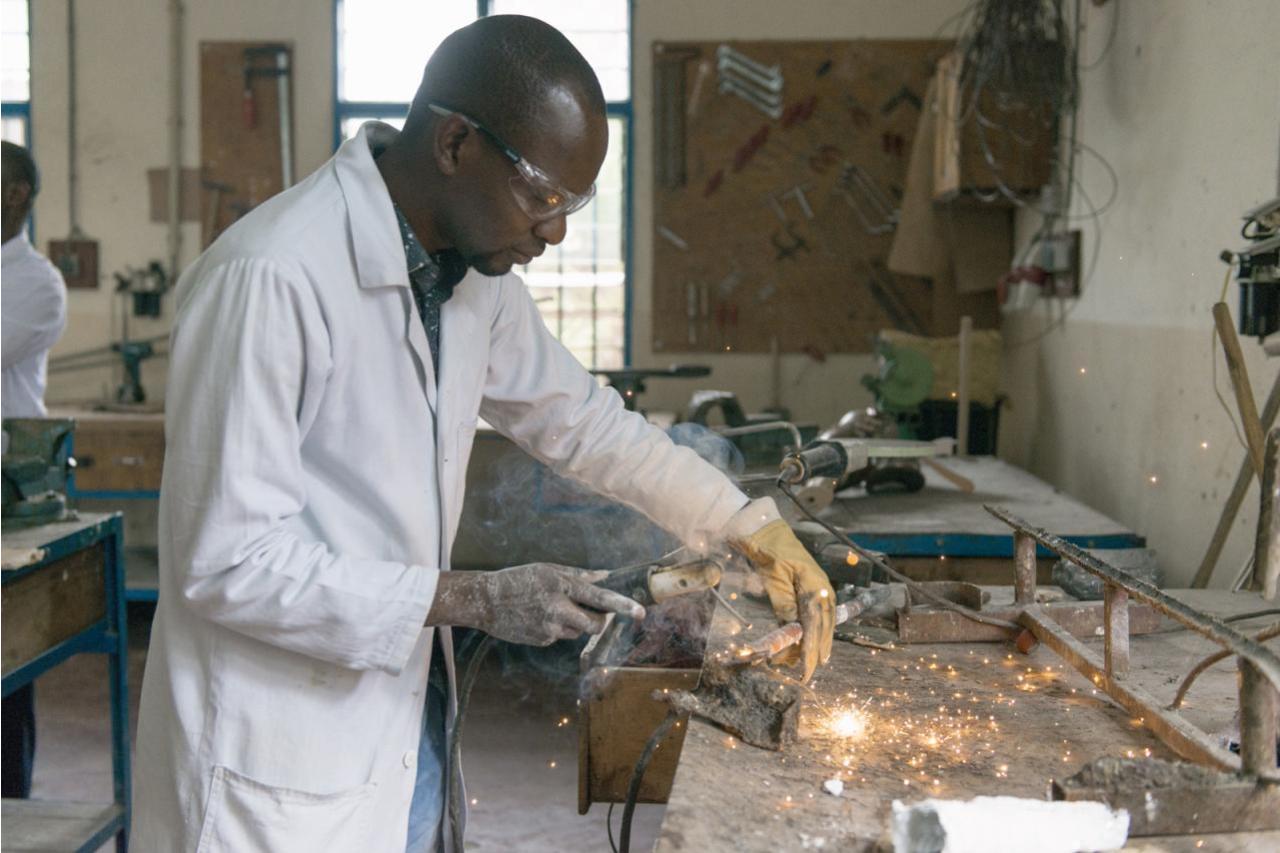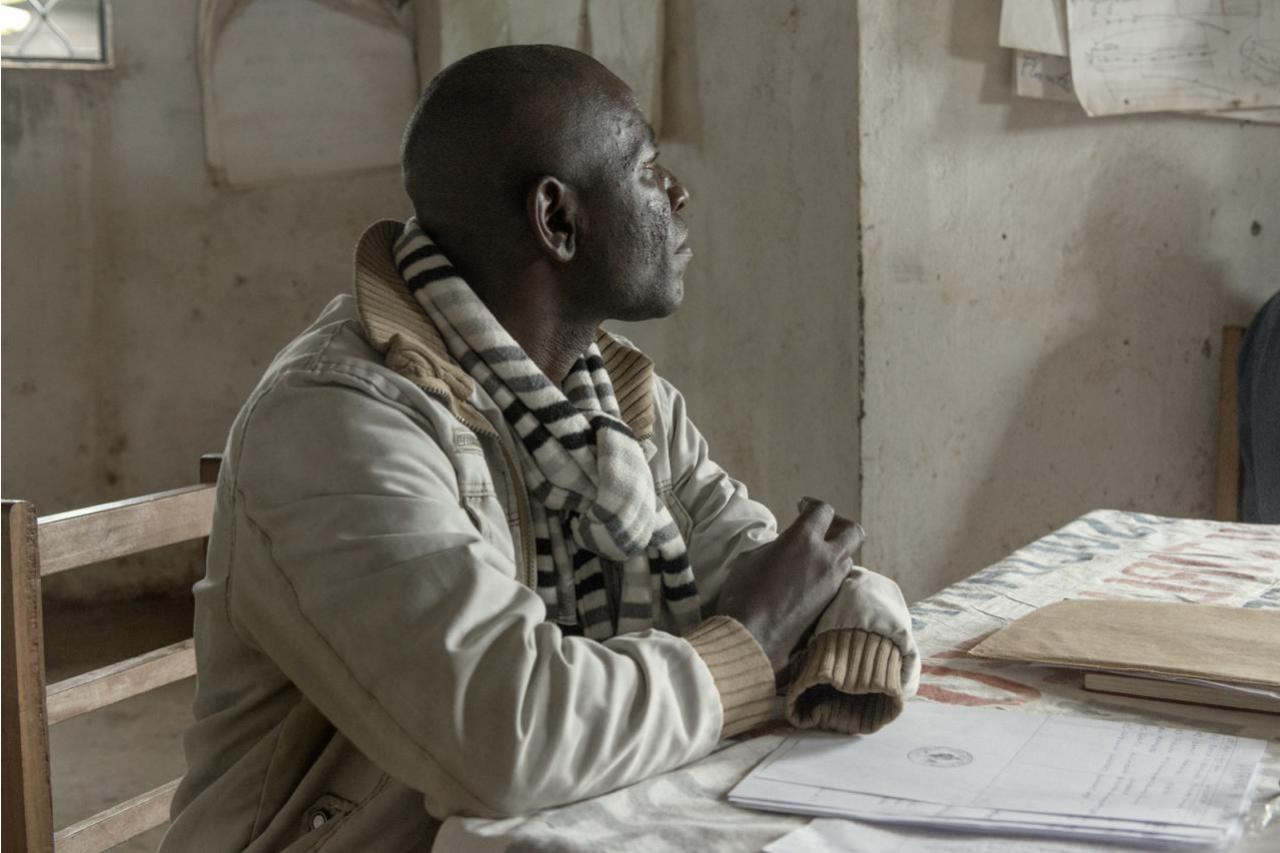Past program (2017–2021)
Our mission in the DRC was to support the Lake Kivu Coffee Alliance–a collective of coffee farmers who have been injured and disabled by landmines and explosive remnants of war–and other disabled persons in this region.
Throughout coffee-growing sectors of the Lake Kivu region, explosives and remnants of war often devastate the lives of coffee workers, their families, and their communities. Mines and other devices not only kill or maim civilians but also prevent farmers from accessing water and arable land. Mines limit travel and impede farmers’ ability to bring their products to markets. Building mutually beneficial links between the coffee industry and victim assistance projects is an important step toward helping victims of conflict improve their lives and lead more active roles within their communities.
In addition to the prosthetic services, Polus has helped locals form a disabled persons organization, enabling them to generate income and become self-sufficient. Polus provided materials and training to build boats to transport goods and services from the island of Idjiwi to other neighboring cities and towns in the eastern DRC. Through this initiative, the disabled population of the Lake Kivu region has created a source of sustainable income, enabling them to become more active members of their communities, and have reported being treated with greater dignity and respect.
The Polus Center collaborated with SUNY Buffalo's IDEA Center to assist with the construction of a Universal Design coffee cupping lab that now serves as a place of training where local disabled populations can acquire high-level skills to become part of the coffee supply chain, one of the region’s most important industries. The design of the cupping lab allows people with disabilities (including coffee farmers who have had to give up farming due to injuries caused by landmines/explosive remnants of war) in the coffee industry to undergo advanced vocational training in coffee production, a highly valued social role.


